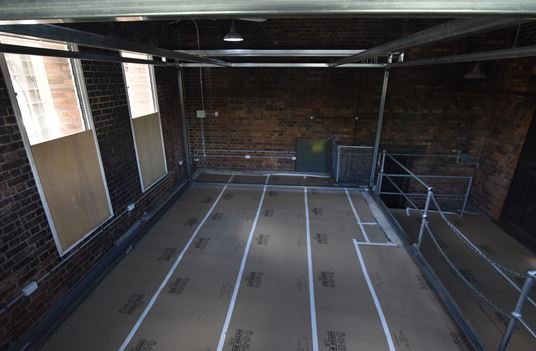ICU of the Future - A world-first project revolutionising Intensive Care Units for patients and their families.
The world-first ICU of the Future is redesigning the Intensive Care Unit environment to be more patient-centric and recovery focused.
Intensive Care Units can be daunting places for patients and their families with up to 75 per cent of patients globally experiencing anxiety, depression, or other physical, cognitive, or psychological problems. While the quality of care provided and survival rates in Australian ICUs are exceptional, the quality of a patient’s life post-discharge can be suboptimal at best.
CCRG has unveiled two new bed spaces at The Prince Charles Hospital in a world-first model that is hoped will change the way ICUs operate and care for in critically ill patients.
What makes the ICU of the Future different?
To deliver a new ICU environment that puts patients at the core, it was critical that we engaged past patients and their families.
Our goal was to deeply understand their experiences, their challenges, and the physical and sensory factors that are linked to long-term patient problems such as PTSD, anxiety, depression, and other psychological complications commonly seen after an ICU admission.
This revolution in ICU design will allow patients to rest and recover in a quiet, peaceful environment, whilst remaining connected to friends and family through innovative technology.
Right: Architect’s impression of the new bed spaces at The Prince Charles Hospital, the leading cardiothoracic hospital in Australia.
While we acknowledged the quality of care provided and that the survival rates in Australian lCUs were exceptional, we had started realising the quality of life after survival could be better for a large percentage of patients.
ICU survival rates in Australia are some of the best in world. Yet seldom do we stop to think of a patient’s quality of life once they’ve been discharged.
Recovering from critical illness can have devastating long-term side effects on a survivor’s mental & physical wellbeing, and that of their families.
1 in 2 Australians will be exposed to an ICU in their lives, either as a patient or as a support person
Up to 25 per cent of patients will experience ICU Delirium, a type of acute brain failure, during admission
75 per cent of ICU patients develop PTSD, anxiety, depression or other conditions as a result of the ICU environment
Many ICU survivors do not return to full time employment
50 per cent of families of ICU survivors make major adjustments to living circumstances such as moving home, delaying education or losing their savings to support a loved one
The Critical Care Research Group is investigating all aspects of the ICU experience to ensure patients not only survive ICU… but THRIVE when they return home.
In the press
Step behind the scenes as two new bed spaces are unveiled at The Prince Charles Hospital.
Past-Patients, clinicians, donors, scientists and researchers came together to celebrate the opening of the new ICU of the Future bed spaces, the result of years of stakeholder engagement, development, and design to ensure patients THRIVE… not only survive.
(L-R:) ICU of the Future Project team including past patient family member James, Michael Hornby, CEO, The Common Good; past-patient Rebecca Craven; CCRG Director John Fraser; and Oystein Tronstad, Project Manager.
Gavin Allen's ICU Experience
Former State of Origin and Brisbane Broncos rugby league player, Gavin Allen, spent three weeks in the ICU following a life-saving heart transplant.
While he is incredibly grateful for the care he received, he said he was as “terrified at times” during his stay in the ICU.
-

ICU of the Future
Reshaping the ICU experience to improve survival rates, optimise recovery and quality of life beyond the hospital.
-

Understanding Post-Intensive Care Syndrome (PICS)
Understanding the precursors and contextual factors to asses who is at risk of developing PICS or other complications following ICU.
-

eDIS-ICU
The first digital delirium tool specifically designed for use in the ICU environment
Other Critical Care Research Group initiatives















